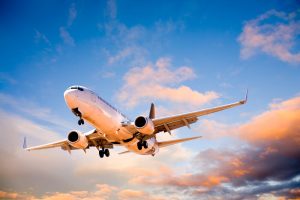By now, you have probably heard about United’s new approach to overbooking. Instead of waiting for departure time and conducting a hasty auction at the gate, United will predict when a flight is likely to be overbooked and then, several days before departure, email or text travelers on cheap tickets with an offer of a substitute flight and a voucher for future travel.
Unlike so many airline moves, this one could actually be a win-win:
- As a passenger who might accept such an offer, you win the opportunity to acquire a voucher plus the ability to adjust to a new flight schedule a day or two in advance rather than last-minute at the airport.
- United wins by avoiding the hassle and delay of a departure-gate auction and the likelihood of attracting volunteers with a lower voucher value than it would have to pay at the gate.
Although much of the publicity about this move has focused on overbooked flights, United will use the system as both a money-maker and a crowd-pleaser for the much wider range of flights that are close to full but not overbooked.
RELATED: This Website Can Get You Money for Flight Delays or Cancellations
Say, for example, you bought a cheap advance-purchase ticket from Boston to Orlando for $300, the walk-up fare a week before departure is $800, and your flight currently has six available seats. If the airline’s computer model predicts that the line could sell an additional six or seven seats at the walk-up fare, it could offer you a $200 voucher, reschedule you on a lighter-load flight, and sell your original seat for $800.
You gain a $200 voucher, the airline keeps your original $300 and gains $800 minus the out-of-pocket cost of the voucher, which is much less than $200. I expect American, Delta, and maybe a few other lines to copy United, probably sooner rather than later.
In addition, the broader basic idea of offering advance incentives will grow to be much bigger. Already, many major airlines incorporate a process of asking economy class travelers if they would like to bid for an upgrade to the next higher class—premium economy, business, or first, depending on the airplane configuration.
Airlines vary their approach: You may get the option when you first book your economy seat, later by an email or text message, and even at the departure gate. Typically, you submit a figure you’re willing to pay. A few days before departure, the airline notifies you if your bid was successful, at which time it charges your card and upgrades you. If your bid isn’t successful, you lose nothing: You keep your original fare and seat assignment.
The process isn’t confined to upgrades: Optiontown, a software outfit, has developed a system that allows travelers to “bid” on a wide range of possible improvements to their flights. Upgrades are just the beginning—Optiontown offers bids for such diverse options as upgraded meals, airport lounge access, extra baggage allowance, preferred economy seats, priority check-in, and even a guaranteed adjacent empty seat.
So far, Optiontown has signed up only a handful of foreign airlines people in the U.S. are unlikely to fly. And, for a variety of reasons, the big U.S. lines aren’t likely to adopt the Optiontown system as it currently operates. But the additional revenue potentials are too large for U.S. airlines to ignore. So they probably won’t ignore them.
More from SmarterTravel:
- 16 Ways to Get Through the Airport Faster
- 9 Ways to Sleep Better on Overnight Flights
- Here Are the 10 Airlines that Charge the Most Fees
Consumer advocate Ed Perkins has been writing about travel for more than three decades. The founding editor of the Consumer Reports Travel Letter, he continues to inform travelers and fight consumer abuses every day at SmarterTravel and Airfarewatchdog.






